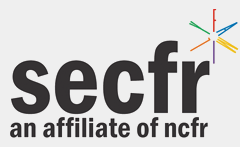Proposal Focus
Research
Presentation Type
Presentation
Abstract
Identity development primarily occurs the most throughout the adolescent and emerging adulthood years (Arnett, 2000), which can be facilitated through gap years. Previous research has shown gap years to be beneficial (Heath, 2007; King, 2010; O’Shea, 2014). However, research has not addressed the personal perspective of gap year alumni on their own identity formation through structured gap year programs. This qualitative, phenomenological study sought to explore the impact of structured gap years on emerging adults’ identity development as well as identify the types of experiences that were effective for personal growth. The study examined the experiences of 15 participants, both gap year alumni and professionals employed by a gap year program. The findings revealed three common themes concerning identity development and four types of experiences that were beneficial for identity formation. Based on the findings and the limitations of the study, the researcher made recommendations for further research.
Keywords
gap year programs, emerging adults, identity development
Location
Yorkshire
Start Date
4-4-2020 9:00 AM
End Date
4-4-2020 9:50 AM
Included in
Development Studies Commons, Family, Life Course, and Society Commons, Quantitative, Qualitative, Comparative, and Historical Methodologies Commons
Identity Development in the Gap: Emerging Adults' Experiences in Structured Gap Year Programs
Yorkshire
Identity development primarily occurs the most throughout the adolescent and emerging adulthood years (Arnett, 2000), which can be facilitated through gap years. Previous research has shown gap years to be beneficial (Heath, 2007; King, 2010; O’Shea, 2014). However, research has not addressed the personal perspective of gap year alumni on their own identity formation through structured gap year programs. This qualitative, phenomenological study sought to explore the impact of structured gap years on emerging adults’ identity development as well as identify the types of experiences that were effective for personal growth. The study examined the experiences of 15 participants, both gap year alumni and professionals employed by a gap year program. The findings revealed three common themes concerning identity development and four types of experiences that were beneficial for identity formation. Based on the findings and the limitations of the study, the researcher made recommendations for further research.

